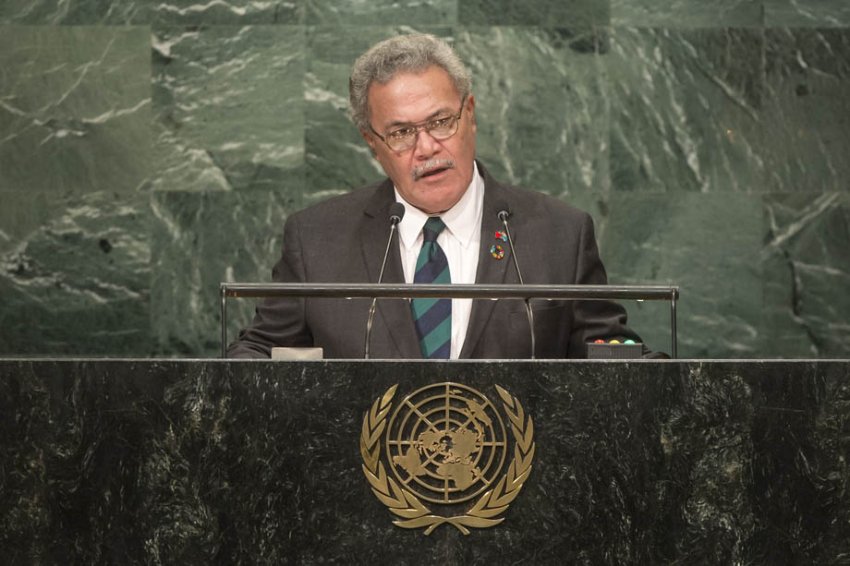
When Tuvaluan Prime Minister Enele Sosene Sopoaga used his United Nations address on September 27 to warn that, for the Pacific, “climate change is a weapon of mass destruction”, most of the seats were vacant.
Sopoaga’s address to a largely empty General Assembly was symbolic of the disdain the largest greenhouse gas emitting countries have for those with the most to lose.
At current projections, Tuvalu will disappear under the seas in between 30-50 years, he said.
“Current global warming trends herald a bleak and miserable future for small island developing states, especially for low-lying atolls like Tuvalu”, Sopoaga told the UN.
![]() He said the Paris climate agreement “offered us a lifeline”, but that the current commitments constitute “only a third of what is needed to avoid catastrophic consequences of climate change”.
He said the Paris climate agreement “offered us a lifeline”, but that the current commitments constitute “only a third of what is needed to avoid catastrophic consequences of climate change”.
“This is a direct threat to our existence and survival,” he said, imploring the international community not to allow the biggest greenhouse gas emitters “to turn away from their moral duty and responsibility” to urgently reduce emissions.
The United States must rejoin the Paris agreement, Sopoaga said. “We cannot allow one country to desert the process and derail our collective efforts.”
Failing this, he called for the Paris agreement signatories to return to the drawing board “to dramatically increase our efforts to reduce greenhouse gas pollution”.
“It will be shameful for the whole of humanity to ever allow Tuvalu to disappear”, Sopoaga said. “Every single year wasted with no action on climate change draws Tuvalu a year closer to its total demise from Earth.”